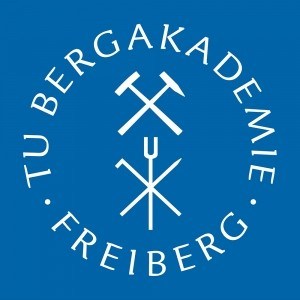Photos of university / #unifreiburg
Educational organisation
The programme consists of lectures, seminars, workshops, excursions, tutorials and colloquiums. The ECTS system allows for individual choices according to the programme guidelines. The programme combines in-class learning with learning-by-doing elements.Internships
Several practice opportunities are provided during the first three semesters. They include crystal growth, crystal-physical parameters, piezoelectricity, and resistance measurements.Forms of assessment
Written and oral exams in accordance with the guidelinesTo be admitted to the Master's thesis, students must be registered at least in the third semester and must have acquired at least 84 ECTS points. The Master's thesis must be written within a period of six months and corresponds to a value of 30 ECTS points. In general, it must be submitted in English.
Course objectives
The new Master of Science Sustainable Materials - Crystalline Materials at the University of Freiburg is a two-year, interdisciplinary course providing a broad education in crystalline structures, their determination and their properties, as well as in their production and applications. It includes a wide range of courses in analytical methods and a comprehensive section on crystal growth. Due to its interdisciplinary nature, it is perfectly suited for students who have obtained a BSc (or equivalent) degree in geosciences (geology, mineralogy), materials science and engineering, physics, chemistry, microsystems engineering, electrical engineering or similar fields, who want to specialise in this exciting and promising area.Graduates holding a Master's degree in Crystalline Materials can find a wide range of potential employment - for example, in the semiconductor industry, in companies working in ceramics and cement, in optics and laser applications, etc. Job prospects are excellent.
Language requirements
The MSc curriculum is taught in English, and therefore English language skills are essential.In order to be eligible for acceptance to the Master of Science in Crystalline Materials degree programme, applicants must have English language skills that meet or exceed level B2 of the Common European Framework of Reference for Languages.
Academic requirements
In order to be eligible for acceptance into the Master of Science Sustainable Materials - Crystalline Materials degree programme, applicants must meet the following criteria:a) Bachelor's degree in one of the following disciplines: BSc in Geology, Geoscience, Earth Science, Mineralogy, Materials Science, Materials Technology, or Microsystems Engineering from a German university, or from other universities and colleges worldwide (in accordance with certain quality control criteria). Students with a BSc degree in Chemistry or Physics may also be granted admission to the programme. In the latter case, some of the fundamental Geoscience courses from the BSc curriculum will have to be taken as electives.
b) No less than 40 ECTS points in material sciences or geosciences and at least 35 ECTS points in mathematics, physics, chemistry or material sciences
c) Knowledge of English (at least level B2). English language skills must be proven by a recognised language test (e.g. TOEFL iBT 79, IELTS band 6, Cambridge Certificate of Advanced English or others) or by a copy of a German "Abitur" or "Fachgebundene Hochschulreife". Language course certificates are not accepted.
Enrolment fees
Approx. 150 EUR per semester, incl. the student union's and university's administrative fees. A semester ticket can be purchased separately for approx. 90 EUR per semester. It covers public transport in Freiburg and the surrounding area.Costs of living
Participants must make sure in good time that sufficient funds are available to finance their participation in a course of study. The average cost of living in Freiburg for one month is currently approx. 800-900 EUR. Some details:- Student accommodation costs approx. 280-450 EUR (monthly).
- Private expenses amount to around 350 EUR (monthly).
- Health insurance is available for approx. 45-90 EUR (monthly).
- Transport: A special student fare for regional transport costs approx. 89 EUR (per semester).
Arrival support
The links below will help you find your way around student life:http://www.studium.uni-freiburg.de/studium-en/rund_ums_studium-en
Life in Freiburg:
http://www.studium.uni-freiburg.de/studieninteressierte-en/leben_in_freiburg-en
Administrative assistance and help with financial affairs at the International Office is provided by Ms Scheidler. You can contact her via e-mail: luitgard.scheidler@io.uni-freiburg.de or via telephone: +49 (0)7 61-2 03 43 75.









